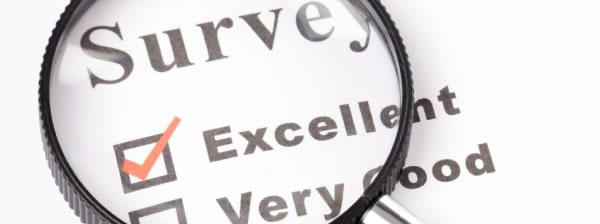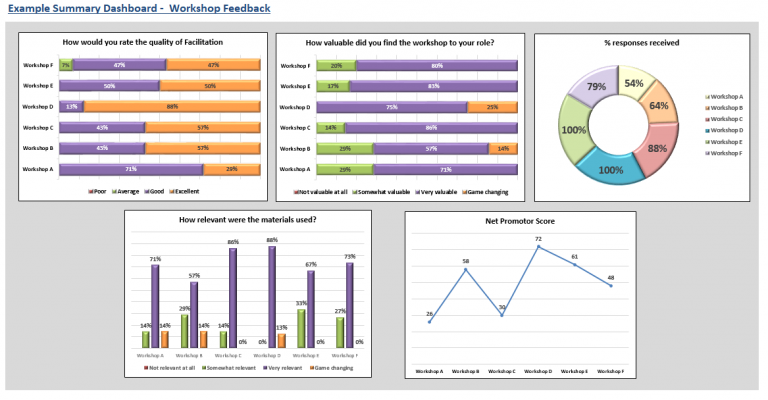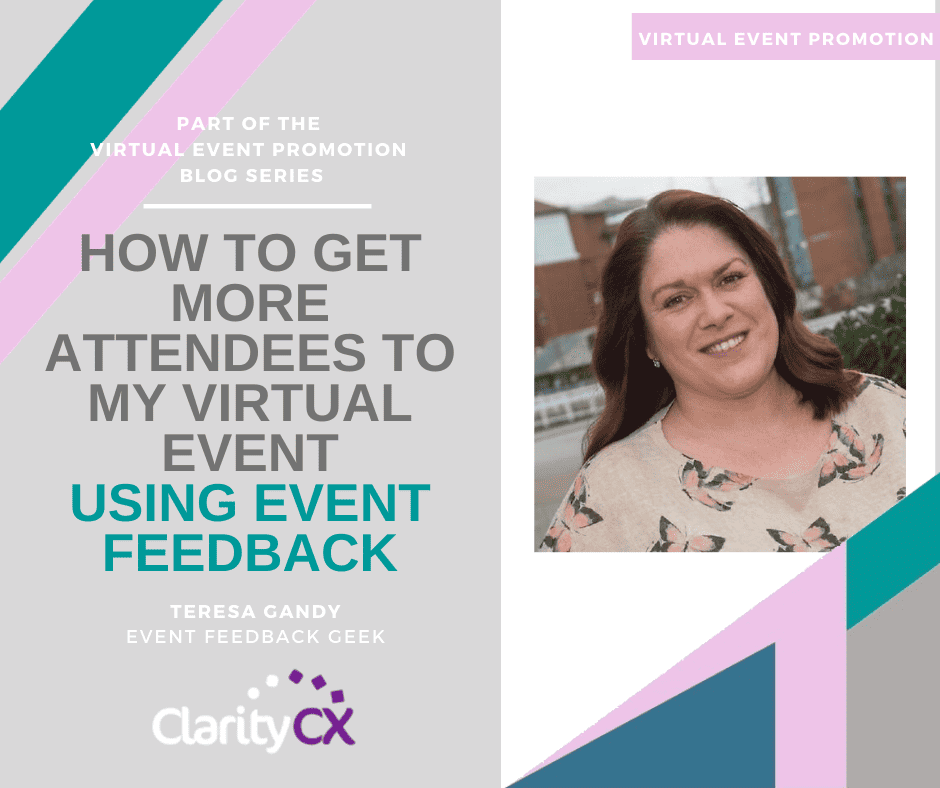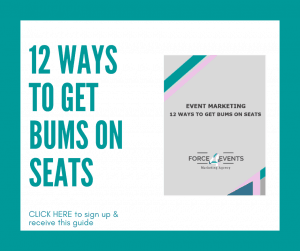How to get more attendees to my virtual events using event feedback
When running an event it’s easy to get absorbed in the ‘right now’. However when it comes to your event feedback you should be thinking of past, present and future.
Your past feedback will be critical to attracting future bookings if you make sure you ask the right things and manage it correctly.
Feedback should be collected from suppliers, attendees, the organising team and key participants eg: speakers. There is considerable benefit in ensuring your event feedback captures more than just the standard “how was it?”
Where to start?
Not with writing questions! Instead start to think about your feedback by documenting how you want to use it. To be blunt, if you’re not going to use it, then save a lot of time and don’t ask! Some uses include:
- Continually improve future events
- Build a list of ‘warm’ leads for future events
- Identifying what elements went well / what could be improved
- Capturing marketing content and statistics (eg: 87% of attendees would book again)
- Testimonial comments – back up those statistics
- What marketing / advertising worked well
- Clarifying your ideal customer and the messages that matter to them
- The benefits of a virtual event
This list is by no means exhaustive, and objectives for using the event feedback need to be personal to the organiser and type of event they are running.
The risk is to want to know EVERYTHING! Keep it focussed on what you can actively manage and use and the resource you have available to do so.
Question time
Using the objectives you have set, this is when you can start to formulate the questions to ask (which are likely very different for each group you are asking).
Make sure that 90% of your event feedback is answerable by multiple choice. That the questions flow in chronological order of how things happened for the recipient.

Ensure there are always optional free text boxes, there’s nothing more annoying than having quality feedback to give, and not having the space to do so! Equally a whole form of free text boxes is a big turn off – it just became too much effort (not to mention a real pain to analyse afterwards!)
You should aim for no more than 10 questions (up to 2 minutes to complete). More than this, you will need to offer an incentive like a voucher or competition entry to expect a good quantity of responses.
Collecting event feedback
Timing is everything! In a virtual world it’s good to distribute a few minutes before you finish. This gives you the opportunity to make them aware, tell them how it will be used and why it’s important.
If you choose to send at a later date, ensure that you communicate when you will be sending the event feedback request and why it is important to you. There’s a little part of the brain that will trigger when they see it as something familiar and safe, rather than junk!
Email remains one of the most effective channels to use. This is good news, especially in our current world of everything remote.
Give deadlines for completion and sending reminders, only to those who haven’t yet responded, will ensure both quantity and quality of responses. 7-10 days after the event works well as a deadline.

Using your results
This is where the time spent planning what you need to know will be super valuable. As well as scheduling in time post-event to conduct that analysis.
- Pull those statistics.
- Capture those quotes that can be marketing gold for future event bookings.
- Analyse suggestions for improvement, doing more of what went well and less of what wasn’t so popular.
- Is additional faciliatator training/support needed to make that virtual event ‘pop’.
By having this strategy for every virtual event, when planning and marketing for your next event you will already have a library of content, statistics and knowledge of what messaging will appeal to your ideal client (which incidentally may have changed based on the knowledge you have gained in this process).
Remember to review your feedback objectives for each event and change as needed.
You can give confidence to those considering booking by using the voice of those who have already experienced it. This is the most effective marketing content there is for any event, product or service.
A good event marketing consultant will have the skills to put this to best use, and it will save both you and them a lot of time getting started and tapping into the right audience.
Feeling stuck or lacking resource?
Outsource, outsource, outsource. Whether it’s the creation of your strategy and questions, the management of distribution, support with analysis or effective marketing of your event there are professionals available to help:
Survey Creation & Feedback Management – ClarityCX – Teresa@ClarityCX.co.uk
Event Marketing – Force 4 Events – raimonda@force4events.co.uk
Remote Facilitator Skills Training – The Business Speakeasy – https://thebusinessspeakeasy.com/
About ClarityCX and Teresa Gandy
Teresa’s passion and expertise lies in modernising and improving the way people request and (most importantly) use the feedback they capture from employees, customers or attendees.
Through ClarityCX, she provides a remote survey management and reporting service for a range of client industries, helping them use their existing client experiences to attract more of the same.
CONTACT: claritycx.co.uk | LinkedIn


